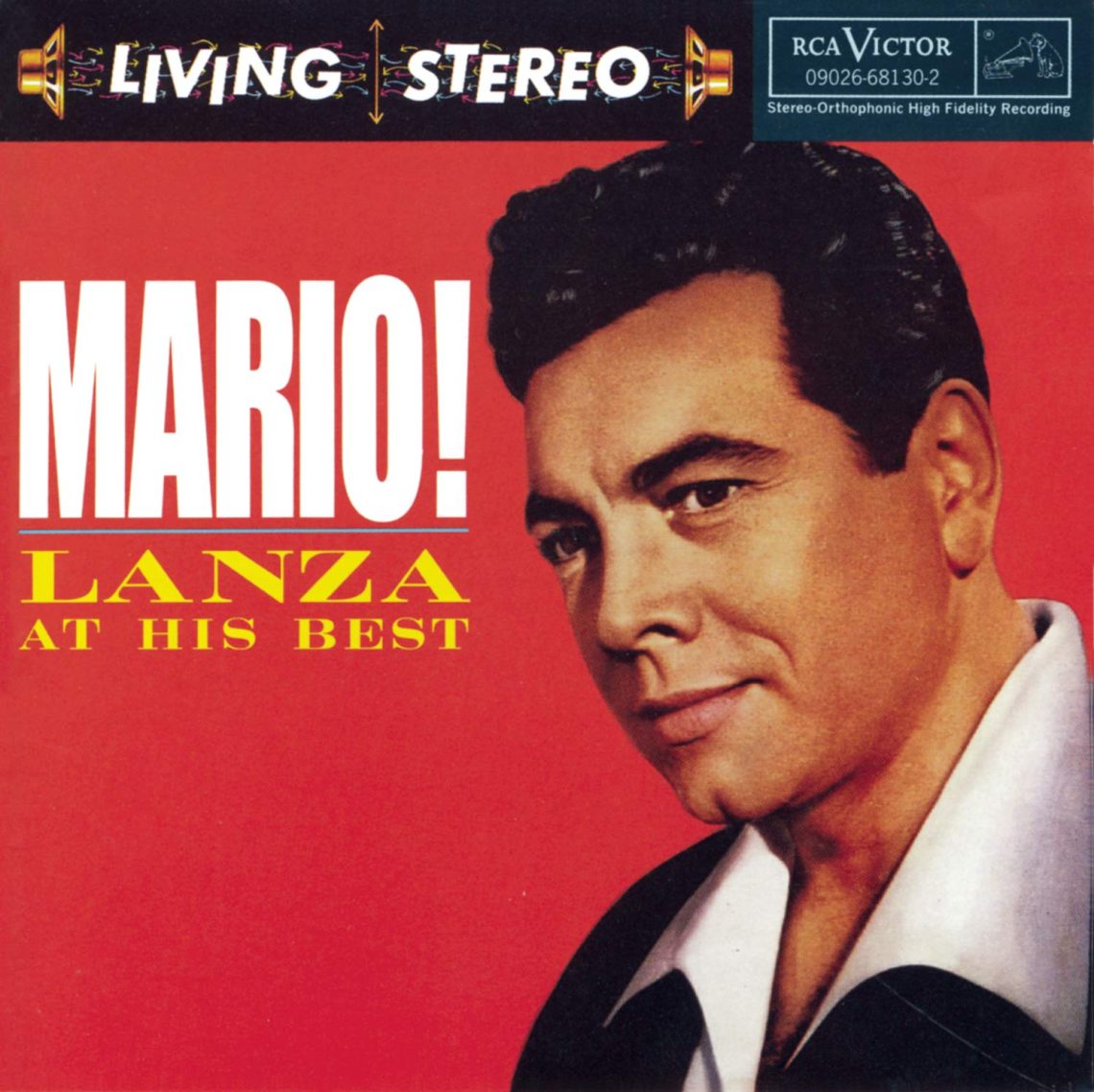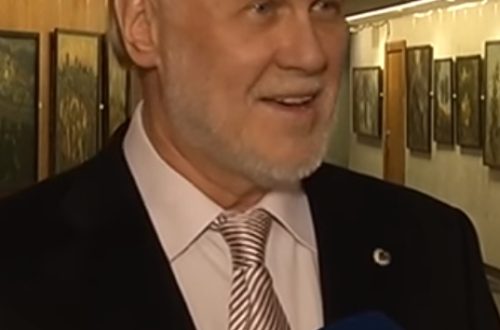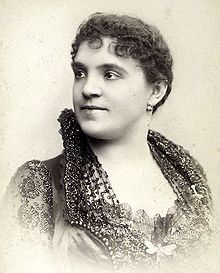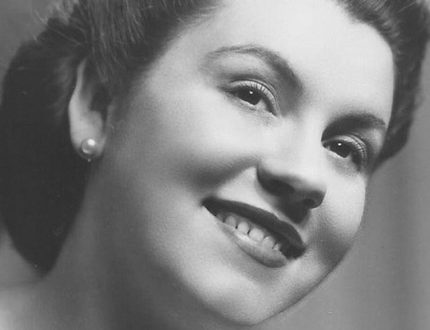
Mario Lanza (Mario Lanza) |
mario lance
“This is the best voice of the XNUMXth century!” – Arturo Toscanini once said when he heard Lanz in the role of the Duke in Verdi’s Rigoletto on the stage of the Metropolitan Opera. Indeed, the singer possessed an amazing dramatic tenor of velvet timbre.
Mario Lanza (real name Alfredo Arnold Cocozza) was born on January 31, 1921 in Philadelphia to an Italian family. Freddie became interested in opera music early. I listened with pleasure and memorized recordings performed by Italian vocal masters from my father’s rich collection. However, more than the boy then loved games with peers. But, apparently, something was in his genes. El de Palma, owner of a shop on Vine Street in Philadelphia, recalls: “I remember one evening. If my memory serves me right, it was in the thirty-ninth year. A real storm broke out in Philadelphia. The city was covered in snow. Everything is white-white. I miss the bar. I do not hope for visitors … And then the door opens; I look and do not believe my eyes: my young friend Alfredo Cocozza himself. All in snow, from under which a blue sailor’s hat and a blue sweater are barely visible. Freddie has a bundle in his hands. Without saying a word, he went deep into the restaurant, settled in its warmest corner and began to play records with Caruso and Ruffo … What I saw surprised me: Freddie was crying, listening to music … He sat like that for a long time. Around midnight, I cautiously called out to Freddie that it was time to close the shop. Freddie didn’t hear me and I went to bed. Returned in the morning, Freddie in the same place. It turns out that he listened to records all night … Later I asked Freddie about that night. He smiled shyly and said, “Signor de Palma, I was very sad. And you are so comfortable…”
I will never forget this incident. It all seemed so strange to me at the time. After all, the ever-present Freddie Cocozza, as far as I remember, was completely different: playful, intricate. He was always doing “feats”. We called him Jesse James for that. He burst into the store like a draft. If he needed something, he did not say, but sang the request … Somehow he came … It seemed to me that Freddie was very worried about something. As always, he sang his request. I tossed him a glass of ice cream. Freddie caught it on the fly and jokingly sang: “If you are the King of the Hogs, then I’m going to be the King of Singers!”
Freddie’s first teacher was a certain Giovanni Di Sabato. He was over eighty. He undertook to teach Freddie musical literacy and solfeggio. Then there were classes with A. Williams and G. Garnell.
As in the lives of many great singers, Freddie also had his lucky break. Lanza says:
“Once I had to help deliver a piano on an order received by a transport office. The instrument had to be brought to the Philadelphia Academy of Music. America’s greatest musicians have performed at this academy since 1857. And not only America. Almost all American presidents, starting with Abraham Lincoln, have been here and delivered their famous speeches. And every time I passed by this great building, I involuntarily took off my hat.
Having set up the piano, I was about to leave with my friends when I suddenly saw the director of the Philadelphia Forum, Mr. William C. Huff, who once listened to me at my mentor Irene Williams. He rushed to meet me, but when he saw “my momentary occupation”, he was taken aback. I was wearing overalls, a red scarf was tied around my neck, my chin was sprinkled with tobacco – this chewing gum that was fashionable at that time.
“What are you doing here, my young friend?”
– Don’t you see? I move pianos.
Huff shook his head reproachfully.
“Aren’t you ashamed, young man?” With such a voice! We must learn to sing, and not try to move the pianos.
I chuckled.
“May I ask, for what money?” There are no millionaires in my family …
Meanwhile, the famous conductor Sergei Koussevitzky had just finished a rehearsal with the Boston Symphony Orchestra in the Great Hall and, sweaty and with a towel over his shoulders, entered his dressing room. Mr. Huff grabbed me by the shoulder and pushed me into the room next to Koussevitzky’s. “Now sing! he shouted. “Sing like you never sang!” – “And what to sing?” “Whatever, just please hurry up!” I spit out the gum and sang…
A little time passed, and maestro Koussevitzky burst into our room.
Where is that voice? That wonderful voice? he exclaimed and greeted me cordially. He swung down to the piano and checked my range. And, kissing me on both cheeks in an oriental way, the maestro, without hesitation for a second, invited me to participate in the Berkshire Music Festival, which was held annually in Tanglewood, Massachusetts. He entrusted my preparation for this festival to such excellent young musicians as Leonard Bernstein, Lukas Foss and Boris Goldovsky…”
On August 7, 1942, the young singer made his debut at the Tanglewood Festival in the small part of Fenton in Nicolai’s comic opera The Merry Wives of Windsor. By that time, he was already acting under the name of Mario Lanza, taking his mother’s surname as a pseudonym.
The next day, even the New York Times wrote enthusiastically: “A young twenty-year-old singer, Mario Lanza, is unusually talented, although his voice lacks maturity and technique. His incomparable tenor is hardly the likes of all contemporary singers.” Other newspapers also choked with praise: “Since the time of Caruso there has not been such a voice …”, “A new vocal miracle has been discovered …”, “Lanza is the second Caruso …”, “A new star was born in the opera firmament!”
Lanza returned to Philadelphia full of impressions and hopes. However, a surprise awaited him: a summons to military service in the United States Air Force. So Lanza held his first concerts during his service, among the pilots. The latter did not skimp on the assessment of his talent: “Caruso of aeronautics”, “Second Caruso”!
After demobilization in 1945, Lanza continued his studies with the famous Italian teacher E. Rosati. Now he really became interested in singing and began to seriously prepare for the career of an opera singer.
On July 8, 1947, Lanza began to actively tour the cities of the USA and Canada with the Bel Canto Trio. On July 1947, XNUMX, the Chicago Tribune wrote: “Young Mario Lanza has created a sensation. A broad-shouldered young man who has recently taken off his military uniform sings with an undeniable right, since he was born to sing. His talent will adorn any opera house in the world.”
The next day, the Grand Park was filled with 76 eager to see with their own eyes and ears the existence of a fabulous tenor. Even bad weather did not scare them away. The next day, in heavy rain, more than 125 listeners gathered here. Chicago Tribune music columnist Claudia Cassidy wrote:
“Mario Lanza, a heavily built, dark-eyed youth, is gifted with the splendor of a natural voice, which he uses almost instinctively. Nevertheless, he has such nuances that it is impossible to learn. He knows the secret to penetrate the hearts of the listeners. The most difficult aria of Radames is performed first-class. The audience roared with delight. Lanza smiled happily. It seemed that he himself was surprised and delighted more than anyone else.
In the same year, the singer received an invitation to perform at the New Orleans Opera House. The debut role was the part of Pinkerton in “Chio-Chio-San” by G. Puccini. This was followed by the work of La Traviata by G. Verdi and Andre Chenier by W. Giordano.
The fame of the singer grew and spread. According to the concertmaster of the singer Constantino Kallinikos, Lanza gave his best concerts in 1951:
“If you saw and heard what happened in 22 US cities during February, March and April 1951, then you would understand how an artist can influence the public. I was there! I have seen that! I heard it! I was shocked by this! I was often offended, sometimes humiliated, but, of course, my name was not Mario Lanza.
Lanza outdid himself in those months. The general impression of the tour was expressed by the solid Time magazine: “Even Caruso was not so adored and did not inspire such worship as Mario Lanza caused during the tour.”
When I remember this tour of the Great Caruso, I see crowds of people, in every city reinforced police squads guarding Mario Lanza, otherwise he would have been crushed by raging fans; incessant official visits and welcome ceremonies, never-ending press conferences that Lanza always abhorred; the endless hype around him, the peeping through the keyhole, the uninvited intrusions into his artist’s room, the need to waste time after each concert waiting for the crowds to disperse; return to the hotel after midnight; breaking buttons and stealing handkerchiefs… Lanza exceeded all my expectations!”
By that time, Lanza had already received an offer that changed his creative destiny. Instead of a career as an opera singer, the fame of a film actor awaited him. The largest film company in the country, Metro-Goldwyn-Meyer, signed a contract with Mario for several films. Although not everything was smooth at first. In the debut film, Lanz was summed up by acting unpreparedness. The monotony and inexpressiveness of his game forced the filmmakers to replace the actor, keeping Lanza’s voice behind the scenes. But Mario did not give up. The next picture, “The Darling of New Orleans” (1951), brings him success.
The famous singer M. Magomayev writes in his book about Lanz:
“The plot of the new tape, which received the final title “New Orleans Darling”, had a common leitmotif with “Midnight Kiss”. In the first film, Lanza played the role of a loader who became the “prince of the opera stage.” And in the second, he, the fisherman, also turns into an opera premiere.
But in the end, it’s not about the plot. Lanza revealed himself as a peculiar actor. Of course, previous experience is taken into account. Mario was also captivated by the script, which managed to blossom the unpretentious life line of the hero with juicy details. The film was filled with emotional contrasts, where there was a place for touching lyrics, restrained drama, and sparkling humor.
“The Favorite of New Orleans” presented the world with amazing musical numbers: fragments from operas, romances and songs created on the verses of Sammy Kahn by composer Nicholas Brodsky, who, as we have already said, was creatively close to Lanz: their dialogue took place on one heart string. Temperament, tender lyrics, frantic expression… It was this that united them, and above all, it was these qualities that were reflected in the main song of the film “Be my love!”, which, I dare say, became a hit of all time.
In the future, films with the participation of Mario follow one after another: The Great Caruso (1952), Because You Are Mine (1956), Serenade (1958), Seven Hills of Rome (1959). The main thing that attracted many thousands of viewers in these films was Lanz’s “magic singing”.
In his latest films, the singer increasingly performs native Italian songs. They also become the basis of his concert programs and recordings.
Gradually, the artist develops a desire to fully devote himself to the stage, the art of vocals. Lanza made such an attempt at the beginning of 1959. The singer leaves the USA and settles in Rome. Alas, Lanz’s dream was not destined to come true. He died in the hospital on October 7, 1959, under circumstances not fully elucidated.





